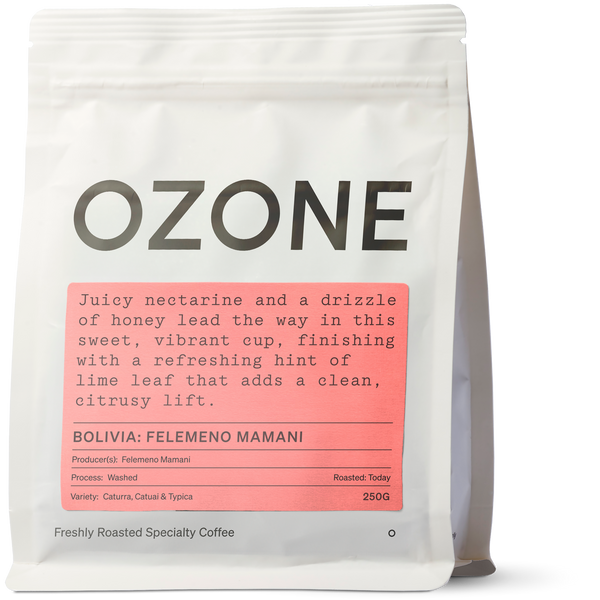Carlos Mariaca – The Heart Behind Don Carlos
In the misty highlands of Caranavi, Bolivia, where coffee trees cling to steep slopes and the air is rich with the scent of ripe cherries, a quiet revolution in specialty coffee has been unfolding - thanks in no small part to Carlos Mariaca.
Carlos is a foundational figure in Bolivian coffee, known not only for his deep knowledge and dedication but also for his humility and warmth. As the oldest and most unconditionally awesome employee of Agricafe, Carlos has been there from the very beginning. Alongside Pedro Rodríguez, Agricafe’s founder, he helped build the wet mill in Caranavi - an essential step in elevating the quality of Bolivian coffee and ushering in the country’s specialty coffee movement.
In recognition of his decades of service and unwavering commitment, Agricafe honoured Carlos in a remarkable way: they named their second farm Finca Don Carlos after him and made him a partner in the project. Planted in 2013, the farm spans 18.7 hectares and is one of seven that make up the Buena Vista project, Agricafe’s ambitious initiative to demonstrate sustainable, high-quality coffee farming in Bolivia.
The Buena Vista farms are managed by Pedro Pablo Rodríguez, son of Pedro Rodríguez. After studying agronomy in Honduras, Pedro Pablo returned with fresh ideas and techniques that he has since applied across the farms. Agricafe began acquiring farms in 2012 in response to a sharp decline in national coffee production. Today, they own twelve farms in total - eight of which are located in Caranavi, Bolivia’s traditional coffee heartland.
What Makes Finca Don Carlos Special?
Finca Don Carlos is planted with Caturra, Catuai, and a small amount of Geisha, each varietal contributing to the farm’s diverse and dynamic cup profiles. Caturra, a natural mutation of Bourbon, is prized for its compact size, ideal for dense planting and easier harvesting, as well as its bright acidity and clean, sweet flavour. However, it is also highly susceptible to leaf rust, a persistent challenge in the region.
Catuai, a hybrid of Mundo Novo and Caturra, offers greater resistance to disease and wind, making it a reliable choice for high-altitude farms like Don Carlos. It produces balanced, sweet coffees with good body and mild acidity. Meanwhile, the Geisha, though grown in very small quantities, adds a layer of floral complexity and elegance, known for its delicate aromatics and silky texture. Together, these varietals reflect the farm’s commitment to quality, resilience, and flavour diversity.
In addition to its focus on coffee, Finca Don Carlos is also deeply committed to environmental sustainability. The farm is actively engaged in reforestation efforts, planting native tree species such as Tajibos, Mara, and Ceibo. These efforts help preserve biodiversity, improve soil health, and support the long-term ecological balance of the Caranavi region.
Understanding Leaf Rust (Roya)
Leaf rust, or la roya, is a fungal disease caused by Hemileia vastatrix. It appears as yellow-orange powdery spots on the underside of coffee leaves, eventually causing them to fall off. This weakens the plant, reduces photosynthesis, and leads to:
- Significant drops in yield
- Lower bean quality
- Long-term damage to coffee trees
In 2016, farms surrounding Don Carlos were hit hard by a leaf rust outbreak, causing a substantial decline in production. But the team at Agricafe responded with resilience, developing a strong disease management program that now serves as a model for other farms in the region.
Carlos Mariaca’s legacy is deeply rooted in the soil of Don Carlos and in the hearts of those he’s worked with. His story is one of loyalty, innovation, and quiet leadership - a testament to the power of community and the enduring spirit of Bolivian coffee.










![Bolivia: La Linda, Experimental Anoxia Washed, Caturra [125g]](http://ozonecoffee.co.uk/cdn/shop/files/BOL_LaLinda_ExpWashed_600x.png?v=1755503687)


